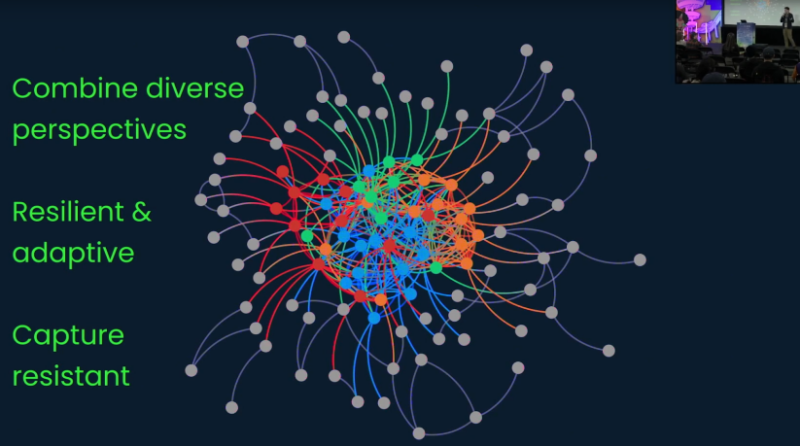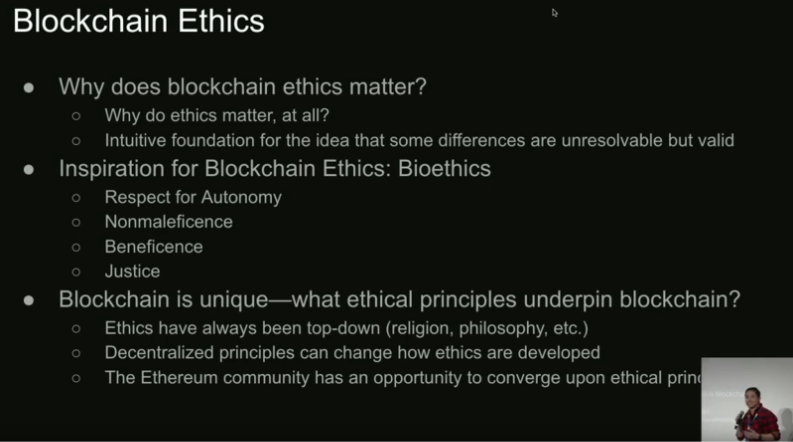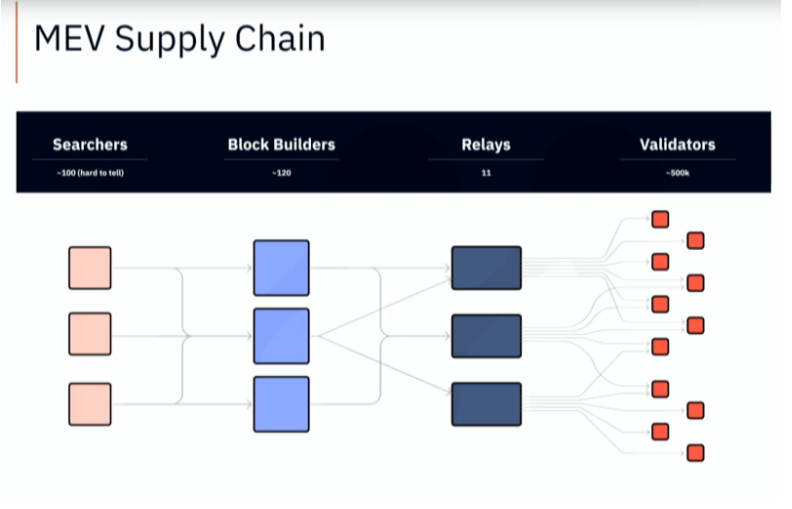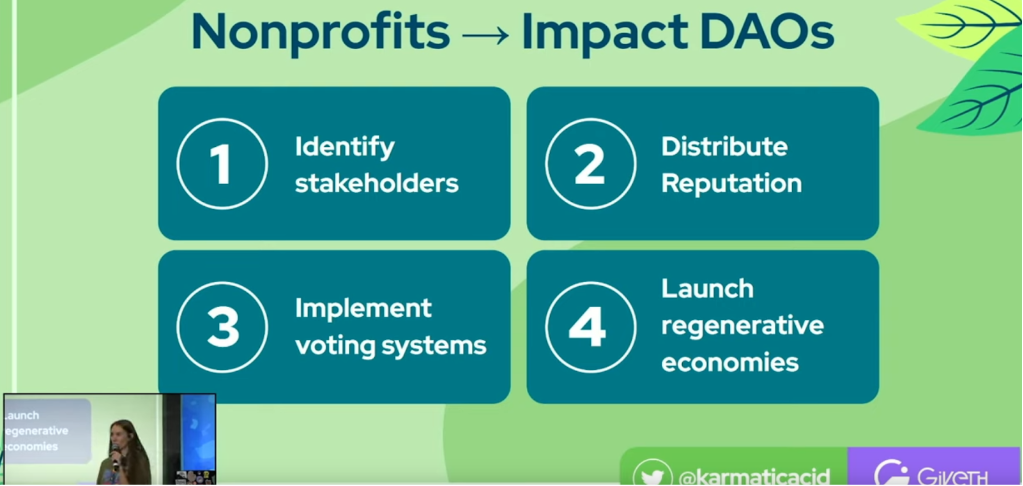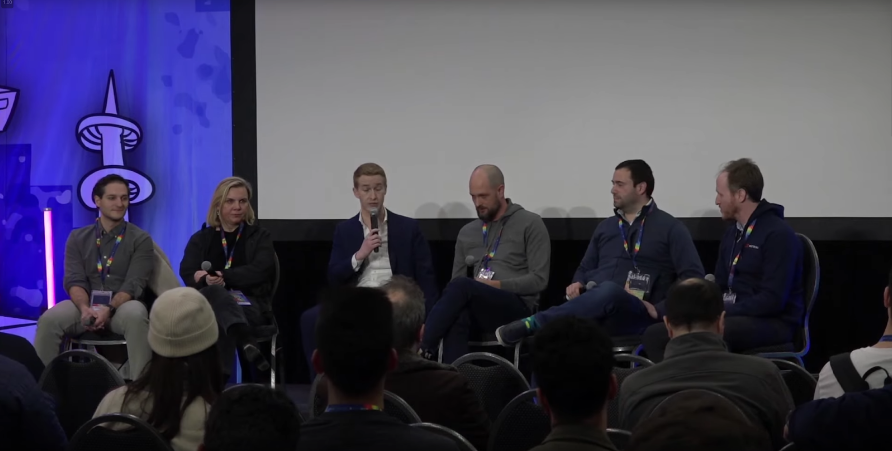by Anaïs Ofranc
Are you disappointed that you were unable to attend EthDenver 2023? Don’t worry, most sessions were recorded and are now available online for your convenience on the EthDenver Youtube channel ! As someone who couldn’t be physically present at the event, I’ve gone through some of the recordings and picked out my top 5 favorite sessions. In this blog post, I’ll be sharing why these sessions stood out to me and why you should definitely make time to watch them. So sit back and let us guide you through my top picks.
This talk is interesting because it highlights a major challenge faced by decentralized autonomous organizations (DAOs), which are designed to operate without central authority or control. Specifically, David Ehrlichman discusses the difficulty of delegating roles and responsibilities in a revocable way within DAOs, which limits their potential to get things done efficiently. This is a significant issue because DAOs have been touted as a potential soluti on for a wide range of problems, from improving governance to creating decentralized financial systems. Ehrlichman argues that operational delegation is key to getting things done efficiently. Currently, only hierarchical structures are good at this, and non-hierarchical structures like DAOs struggle with consistency and cohesiveness. Ehrlichman provides a framework for how to think about and solve this problem.
In this presentation, Reuben Youngblom discusses the need to develop an ethical framework for the decentralized world. Youngblom argues that responsible development and ethical considerations are crucial for the success of the technology and reducing negative externalities. He also emphasizes the importance of developing ethics for blockchain, as it raises novel ethical issues that do not have historical precedents, and traditional ethics may not apply to this new world. They propose modeling blockchain ethics after bioethics, which has developed a framework of four ethical principles that can guide decision-making in the field: trustlessness, objectivity, respect for autonomy, and permissionlessness. Youngblom focuses on the importance of objectivity in the Ethereum and Web3 context and highlights the danger of biases and incentives.
If you are interested in learning more about MEV (miner-extracted value) relays and want to have a good overview of how it all works, you might want to check out this talk by Alex Nathan.
It provides insights into various aspects of MEV relays in the Ethereum network and into the MEV supply chain which has become increasingly important in the post-merge world. Nathan explains the role of various players in the supply chain, including Searchers, Block Builders, Validators, and Relays, and highlights the importance of monitoring and ensuring the trustworthiness of MEV relays. The talk also touches on controversial topics such as OFAC Compliance and censorship in the MEV supply chain.
The talk by Lauren Loose focuses on the challenges faced by public goods, which are freely accessible but suffer from a lack of innovation and effective feedback systems. Lauren emphasizes the need for effective systems for feedback and innovation in the public goods sector and proposes the creation of Impact DAOs – bottom-up, constantly evolving, purpose driven coordination networks. Impact DAOs are decentralized organizations that take into account the feedback of a variety of stakeholders and have their own regenerative funding streams. The four steps to turn non-profits into Impact DAOs are identifying stakeholders, distributing reputation, implementing voting systems, and launching regenerative economies. The talk also discusses strategies for distributing reputation tokens in a non-profit DAO, including initial distribution via an airdrop, quantitative contributions, and qualitative contributions.
The example of a non-profit discussed in the talk is The Ocean Cleanup, which is focused on taking plastic out of the oceans.
And finally, you can catch up on the lively panel discussion with leaders from the financial industry and regulatory bodies during which they explore the current state and future outlook of Ethereum. The panelists discuss the barriers that traditional financial institutions face when trying to adopt blockchain technology, particularly challenges of getting financial institutions to consider permissionless blockchains like Ethereum. They highlight concerns around the rigorous systems and information these institutions have in place, making it difficult for them to adopt new technology easily. They also discuss the importance of meeting regulatory requirements (such as AML and KYC), managing risk, standardization, killer apps, and developing new markets. Finally, the speakers discuss the need for more sophisticated tooling to allow companies to choose to be OFAC compliant or not, bringing more people with crypto backgrounds into the industry, and promoting equal access to technology to promote informed decision-making.
In conclusion, EthDenver 2023 was a great success, bringing together experts from all over the world to discuss the challenges and opportunities in the Ethereum space. The five sessions highlighted in this article provide a glimpse into the cutting-edge innovations and thought leadership that were shared at the event. As blockchain technology continues to evolve, it will be interesting to see how these discussions and ideas shape the future of the industry. We look forward to attending similar events in the future and staying abreast of the latest developments in Ethereum.

